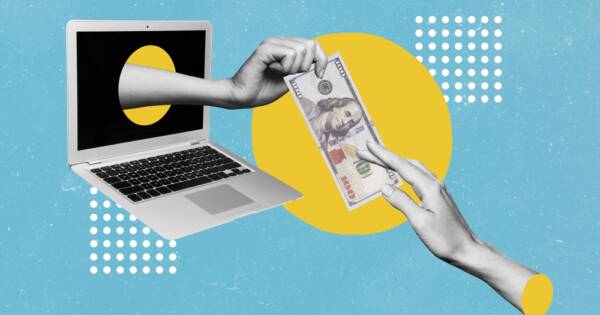Buying a home is one of the biggest financial steps most people take—but saving for a large down payment can feel out of reach. Fortunately, homeownership is still possible even if you don’t have a lot of money set aside. With the right preparation, financing programs, and budgeting strategies, you can secure a mortgage that fits your situation. Understanding your options and planning carefully can open the door to owning a home sooner than you might think.
1. Understand What “Limited Money Down” Means
A traditional down payment often equals 20% of the home’s purchase price, but many lenders now offer programs that require far less. In fact, some buyers qualify for mortgages with as little as 3% down—or even zero in certain cases.
The down payment is the amount you pay upfront when purchasing a home, while the rest is financed through your mortgage. Putting less down may increase your monthly payments slightly, but it can help you buy a home faster and preserve cash for closing costs, moving expenses, or future repairs.
Before deciding how much to put down, it’s important to understand how a smaller down payment affects your loan terms, including interest rates and the need for mortgage insurance. Knowing these trade-offs helps you make a confident and informed choice.
2. Explore Low-Down-Payment Loan Options
Several government-backed and conventional loan programs are designed to help buyers purchase homes with minimal upfront costs. Depending on your income, credit, and location, you may qualify for one of the following options:
- FHA Loans: Backed by the Federal Housing Administration, FHA loans typically require as little as 3.5% down and are popular with first-time buyers. They’re also more flexible when it comes to credit scores.
- VA Loans: Available to eligible veterans, active-duty service members, and certain military spouses, VA loans often require no down payment and do not include private mortgage insurance (PMI).
- USDA Loans: The U.S. Department of Agriculture offers loans for homes in designated rural areas. Qualified applicants can buy with zero down and benefit from competitive interest rates.
- Conventional 97 Loans: Offered by many private lenders, this program allows buyers to put down just 3% on a conventional loan, making it one of the most accessible options for those with limited savings.
Each program has specific requirements, including income limits, property eligibility, and credit standards, so it’s worth studying which one best fits your situation.
3. Consider Down Payment Assistance Programs
If you’re struggling to save for even a small down payment, local and state assistance programs can help bridge the gap. These initiatives—often supported by housing authorities, nonprofits, or state governments—offer grants, forgivable loans, or deferred-payment options to qualifying buyers.
Many of these programs are aimed at first-time homeowners, though some extend eligibility to repeat buyers who haven’t owned a home in recent years. They may cover part or all of your down payment and sometimes even assist with closing costs.
To find opportunities in your area, visit your state’s housing finance agency website or ask your lender about programs they participate in. Working with a housing counselor can also help you identify options and prepare a stronger loan application.
4. Strengthen Your Financial Profile
Even when buying a house with little money down, your financial readiness plays a key role in approval and affordability. Lenders look at factors such as your credit score, income stability, and debt-to-income ratio to determine eligibility.
Start by reviewing your credit report and paying off or reducing high-interest debts. Maintaining steady employment and consistent income can also help you qualify for better loan terms. Creating a clear budget and saving regularly—even small amounts—demonstrates financial discipline to lenders.
If possible, aim to set aside funds for other homebuying costs, such as inspections, appraisals, and closing fees. These expenses can add up, but being prepared helps avoid surprises and delays in the buying process.
5. Explore Creative Ways to Supplement Your Down Payment
If you still find yourself short on funds, consider alternative ways to boost your buying power. Some buyers use gifts from family members, employer homebuying benefits, or retirement savings (through certain penalty-free withdrawals) to contribute to their down payment.
You can also look into programs that allow you to receive seller concessions—credits from the seller that help cover closing costs or prepaids. These arrangements can free up cash for your down payment or reduce your out-of-pocket expenses at closing.
Additionally, taking on a short-term side job or reducing discretionary spending for several months can help you build savings more quickly. Every bit counts when working toward your goal of homeownership.
6. Weigh the Pros and Cons
Buying a home with limited money down can make homeownership more attainable, but it’s important to understand both the benefits and trade-offs.
Advantages:
- Faster entry into the housing market
- More flexibility to preserve emergency savings
- Access to programs that lower upfront costs
Potential Drawbacks:
- Higher monthly mortgage payments
- Additional costs from mortgage insurance
- Less immediate home equity
Balancing these factors carefully ensures you make a decision that supports both your short-term affordability and long-term financial goals.
Turning Limited Savings Into Opportunity
Buying a house with limited money down is entirely possible with preparation, research, and creativity. By exploring low-down-payment loans, leveraging assistance programs, and strengthening your financial profile, you can take meaningful steps toward homeownership.
Every dollar saved and every program utilized brings you closer to your goal. With the right mindset and planning, limited funds don’t have to limit your future—your dream of owning a home can start right where you are today.




